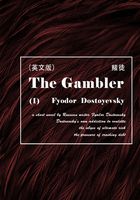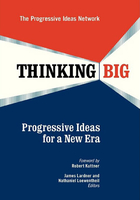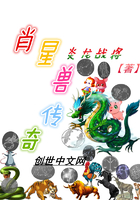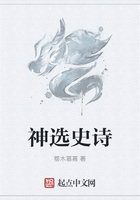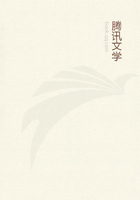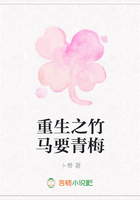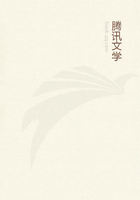We assume that you, the reader, want to be ethical. This book is not intended to preach to you or to assume that we, the authors, are in a morally superior state encouraging you to join us in being better people than you are. As human beings, most of us are trying to be the best people that we can be. Unfortunately, however, acting ethically and intending to be ethical are not always the same.
Surely you have found yourself in difficult personal situations in which you want to do the right thing but are unsure of what action would be the right one. For example, you may have been uncertain of which charity you should give money to, how much to give, or whether, in the interests of your family, you should contribute anything; you may wonder whether you should tell a friend of the untrue gossip that others have reported about her; or you may debate within yourself about how much time to spend at home with your family while there are other obligations vying for your attention.
Sometimes ethically problematic cases occur at the office. Ethical questions may occur concerning whether an employee ought to be fired, how departmental funds ought to be allocated, or how to rate an employee on a yearly evaluation. In all ethical cases, whether personal or professional, your intent may be to take the best course of action, but you may not know what the best course of action is.
We would like to find a magic formula that would solve all our ethical problems, but no magic formula exists. We must think through ethical problems with the best information, understanding, and skill that we have. The purpose of this book is to help improve those capabilities so that you will be better prepared for the ethical issues that arise in the course of your work, decide them with greater self-assurance, perform your duties in a more ethically justifiable manner, and be able to explain your actions more reasonably.
IS PROFESSIONAL ETHICS DIFFERENT FROM PERSONAL ETHICS?
Ethics exists apart from one's profession, but no profession exists apart from ethics. There may appear to be a vast difference between the personal ethical matters of whether to speed on the highway or to buy speed from a drug pusher and the budgetary and personnel matters that confront one at work. Nevertheless, there are universal values and principles that govern ethics in all areas. These values and principles include respect for other people, human equality, honesty, and fairness. Some people may "check their consciences in at the door" when they go to work, but such people do not provide evidence that ethics varies from one environment to another. They demonstrate only that they are not fully ethical. The work context may be different from the home context, but the governing notions are the same. This book will focus on those universals.
IS ETHICS IN THE PUBLIC SECTOR DIFFERENT FROM ETHICS IN THE PRIVATE SECTOR?
Just as the context in which ethical principles apply varies between the personal and the professional environment, the context also varies, at least to some extent, between the public sector and the private sector. As we indicate in Chapter 2, different factors exist in each environment to alter both the details of the decision-making process and, at least on occasion, the decisions themselves. For example, a private company may recognize a moral responsibility to donate some of its profits to charity, but a public agency may be ethically prohibited from such largesse with public funds. A public agency may be ethically bound by the will of the general public to hire employees at union wage scales, but a small private company with very little capital may be unable to afford such salaries without firing people or risking bankruptcy. In this book, our concern is with ethics in the public sector.
Within the public sector, there are innumerable agencies with different tasks, reporting lines, levels of responsibility, and ethical cultures. Thorough discussion of each agency is beyond the scope of this book. However, the understanding of ethics in general and in its application to public service as a whole can be applied to the conditions of specific agencies.
TIPS AND CAUTIONS
When discussions of ethics arise, people often have reactions that seem appropriate to the subject matter but hinder investigation rather than enlighten it. We mention a few of those reactions here.
Don't get uptight: The purpose of our discussing ethics is to help you and not to judge you. Try to keep an objective distance from the subject matter.
Don't be an ethical faultfinder: When people study a new subject matter, they often apply it to anything and everything they encounter. If you visit with a first-year psychology student, he or she will interpret all of your actions as signs of mental disorders. Someone who is new to the study of logical fallacies will "find" them in practically every sentence that you utter. There is also a tendency among people deeply engaged in the study of ethics to find an ethical aspect, most often an ethically questionable one, in everything that everyone does—or does not do. It is not the purpose of this book to make you a moral judge of other people's behavior; its purpose is to help you decide what you should do.
Don't take it personally: The tendency to be overly judgmental is often self-reflexive. We do not propose to make you neurotic in your self-criticism of your motives or behavior. We hope that you will learn something from this book that you can apply to your future professional and, possibly, personal behavior, but there is little value in ethical self-deprecation.
Remember that no one is perfect: Perfection is an ideal but it is not a reasonable goal. No baseball player can hit a home run in every at-bat; no attorney can win every case; and no one can perform the perfect action every time, even if he or she has every intention of doing so. We all, however, can improve and help others improve. The importance of an ideal is not so much that it serves as a state to be attained, but that it is something to work toward as a means of improvement.
Sometimes there will be no clear solution to an ethical problem: Aristotle said that one cannot expect too much precision from the study of ethics. It is not an exact science. The greatest minds in history have disagreed on how to solve ethical dilemmas, so we cannot expect a clear, logical, and unambiguous answer to every ethical question. We can, however, learn to examine an ethical issue in a manner that is most likely to provide the best result.
THE GENERAL STRUCTURE OF THE BOOK
In Chapter 1, we examine the problem of encouraging public administrators to take ethical concerns seriously in the work environment by introducing serious ethical concerns into the consciousness of the public administrator. At one level, there appears to be great concern for ethics in the public service. According to the survey results, a great majority of managers believe that ethical concerns can be empowering in organizations, and few believe that a concern for ethics is either meaningless or harmful. Nevertheless, getting people to confront ethical issues seriously is a major challenge in the "real world" of the public administrator, who has deadlines to meet, budgets to justify, and a clientele to serve. As Chapter 1 notes, "In such a setting, raising ethical questions can be unsettling, if not risky. If we stick to such issues as financial disclosure, bidding and procurement, and conflict of interest, we are on safe ground. If we shift to questions of judgment and justification, of principles and integrity, then we travel into alien territory."
The problem cannot be resolved unless public administrators realize that ethics is at least as much a part of their profession as any other facet, including budgeting, personnel evaluation, and promptness in meeting deadlines. Moreover, as we will argue in the later chapters of the book, ethics enters into all facets of the public administrator's job. Managers realize the importance of ethics when they answer survey questions, but they do not always apply their concern for ethics on the job.
In Chapter 2, we examine the special importance of ethics in public administration, as opposed to private business. No one is exempt from ethics, and we do not mean to imply that private organizations are either unethical or unconcerned with ethics. Nevertheless, ethics plays a different role in the public sector than in the private sector. The aim of the private corporation is, in general, to make a profit. In a free-market system, the result of people seeking their own best interest, under reasonable laws and regulation, should—at least in theory—produce a fruitful and materially abundant society. Still, the immediate aim of the private firm is profit for itself.
The work of the public agency, however, expresses more directly the values of the society as a whole. Public agencies are created and funded to perform a function that the society as a whole, through its political system, deems important enough to merit governmental attention. The public agency is therefore responsible to the society as a whole, rather than to a special clientele. Even when the agency, such as a department of mental health, serves only a small number of people, the work of the agency is conducted at the behest of the society as a whole. The public agency is the steward of public money and not of private interest. While the private firm operates to make a profit, profit is essentially irrelevant to most public agencies.
The different roles of ethics in the private and public sectors are evident in several organizational ethics statements cited throughout Chapter 2. Private ethics statements often suggest that ethical behavior has good public relations as at least one of its aims; statements of agencies in the public sector treat ethics more as an end in itself.
The chapter concludes with the suggestion that, because ethics is so central to public service, it is an ethical calling as well as a profession. It is therefore not surprising that well-researched evidence, cited in the chapter, suggests that public service generally attracts professionals who are more interested in the betterment of society than are those who enter the private sector.
The first two chapters suggest a paradox. While both chapters emphasize the importance of ethics to public administration, Chapter 1 notes the reluctance of public agents to focus sufficiently on ethics. Among the more evident reasons for placing ethics "on the back burner" are both the anxiety that one experiences in discussing matters pertaining to one's character and the complicated, sometimes vague, notions that enter into ethical analysis.
Chapter 3 attempts to address those issues by familiarizing the reader with the historically important ethical theories and drawing from them a method of addressing ethical problems. The chapter summarizes five general ethical theories: relativism, teleology, deontology, virtue theory, and intuitionism. The first, relativism, may seem attractively "nonjudgmental," but we argue that relativism is unacceptable to most people when they realize that its full impact is to deny the truth of any moral judgments, including the belief that murder is wrong and, ironically, that it is wrong to pass judgment on other people. We further argue that the four others—teleology, deontology, virtue theory, and intuitionism—are not really as distinct as they have generally been thought to be. They can be unified into one ethical system.
The unity of the four provides the basis for the application of ethical theory to practice. Each theory suggests different questions for the ethical thinker to consider in reaching an ethical conclusion. We combine all four sets of questions into a list to be applied to any ethical issue that one might encounter. Consideration of the questions on the list does not offer a formulaic solution to all ethical problems, but it does provide a framework in which to make informed and well-reasoned decisions in which one can have confidence.
Chapter 4 applies that framework to actual cases in which professionals in the public service have made ethical decisions. The cases include the Tuskegee syphilis study, the "Saturday Night Massacre" that took place during the Watergate affair, and a more obscure issue concerning a possible invasion of privacy involving an employee of a public library. While the chapter provides the reasoning behind the decisions that were made, it invites the reader to come to his or her own conclusions based upon the framework that emerged from Chapter 3.
That framework is also the foundation of the ideas discussed in Chapter 5, which returns to the "real world" of the public administrator. After reviewing the literature on the ethical organizational culture in public administration, the chapter attempts to move public administration from a state of minimal concern for ethics to a state of ethical maturity. That maturity requires advancing beyond the prescribed rules of ethics codes to the fundamental ethical reasoning behind ethics in general, as expressed in the unified ethic. That reasoning, in order to function effectively, must be developed throughout entire agencies in their organizational cultures.
Chapter 6 develops the theme of an ethical integration more fully, applying the notion to the individual, the organization, and the society as a whole. Robert Wuthnow (1996) argues that the American Dream is concerned with ends in themselves as well as with material success. Ethical values are ends in themselves and are therefore inseparable from the rest of one's concerns. When those ethical values are challenged in the workplace, one experiences moral stress—the discomfort we feel when we know things are not right, when we try to rationalize our way out of a morally distressing situation. Moral stress disrupts not only the individual, but also the organization and the society that it serves.
While the total elimination of moral stress is impossible, we argue that it could be alleviated if ethics were an integral part of organizations. We argue that moral stress in public administration largely originates in the absence of clear constitutional legitimacy for the behavior of the organization, its neglect of ethical complexities, and the occurrence of daily ethical quandaries. In organizations that are ethically integrated, both within themselves and with the society of which they are a part, moral stress can be kept to a minimum. In such organizations, the individual can attain a state of personal equilibrium that enables him or her to provide a satisfactory answer to the questions asked in the title of the chapter: Who am I? Who do I want to be? What do I want?
Chapter 7 attempts to bridge the previous chapters and the subsequent chapters by providing a more comprehensive decision-making framework for moral choices. We refer to that framework as the enhanced unified ethic, which supplements the unified ethic with behavioral and organizational perspectives. The enhanced unified ethic offers at least six advantages to public administrators: (1) a functional philosophical, behavioral, and organizational framework for ethical decision making; (2) a broader and deeper understanding of the ethical dimensions and implications of decisions; (3) a reduction of moral stress; (4) insight into moral dilemmas, which oppose two apparently correct moral values; (5) a basis for reasoning and justification concerning moral dilemmas, rooted in prudent compromise, cooperation, and consistency; and (6) a redefinition of ethics from the alien to the familiar, comforting, and productive.
Chapters 8 and 9 consider hypothetical cases that might arise and ask the reader to resolve them, using the enhanced unified ethic as the framework. The cases involve common ethical dilemmas that one might face in the course of one's work as a public agent.
In Chapter 8, the importance of character in ethical decision making emerges. In examining the ethically problematic hypothetical cases, one notes that, for the sake of an organization, the character traits of the administrator are at least as important as the decisions that he or she reaches. Sometimes, an issue is so complex or ambiguous that the decision maker cannot provide definitive reasons for an ethical conclusion, but if he or she exhibits moral virtue in making a choice, the organization is well served. Sometimes a decision is made on feelings or intuitions, but if they are those of a decision maker of good character, both the individual and the organization can have confidence in them.
As Chapter 8 comes to a close, the reader is drawn yet further from a formulaic basis of moral decision making to a greater reliance on well-informed and well-developed judgment. Since each person has different ways of arriving at such judgments, we introduce the notion of an ethical style, which is the individual's own approach to making ethical choices.
Chapter 9 develops the notion of an ethical style more fully. We introduce Robert Solomon's (1999) definition of an ethical style as the individual mix of virtues and vices that makes up each one of us and defines the perspective through which we plan and judge our actions and those of others. We tentatively develop it further to include one's values, but finally conclude that when one's ethical style is fully developed, it constitutes his or her entire personality. Thus, the unified ethic ultimately leads us to a deeper understanding of ourselves.
In Chapter 9, we also provide exercises to help the individual determine his or her own ethical style. We conclude that, while theoretically the best ethical style would be the embodiment of the entire unified ethic in one person, in practice, there is no single best ethical style. The individual should work within his or her own ethical style to reach his or her potential as an ethical person.
In Chapter 10, we turn our attention to two different aspects of ethical conflict. The first part of the chapter discusses the conflict between public and private morality, which some philosophers, such as Bernard Williams, claim reflects distinct and often contradictory moral systems. We, on the contrary, argue that conflicts between the two allegedly different systems are actually disagreements within the context of one overarching moral system, which we have identified as the unified ethic.
The second part of Chapter 10 concerns conflicts between conscientiously held ethical perspectives within public organizations. The unified ethic cannot put an end to such conflicts but can ameliorate them with the assistance of the Ethics Impact Statement, as discussed by Carol Lewis, and the Ethical Conscience Statement, which we introduce as a means for an individual to express his or her morally based reasons for ethical disagreement with organizational policy.
In Chapter 11, we explore leadership development and moral agency in contemporary governance, including the need to develop and sustain the next generation of ethical public service leaders. Through a comparative approach, we consider leadership development in several member countries of the Organization for Economic Cooperation and Development, with special emphasis on the United States. We also propose the unified ethic as a framework for leadership development in general and the development of ethical leadership in particular. In this context, we offer a two-stage ethics training initiative focused on values clarification and justification of policies, programs, and practices in light of those values. Finally, we conclude this chapter by suggesting that leadership development should become an integral part of capacity-building in governance, and that public servants are moral actors whose decisions inevitably require the exercise of responsible judgment and discretion.
Chapter 12 examines attempts to reform government to make it more efficient and businesslike. An examination of the results of such efforts suggests, however, that the zeal for reform has little supporting evidence. For example, the chapter shows that careful studies reveal that the attempt to "reinvent government" produced few, if any, verifiable results.
More troubling than the lack of empirical support for such innovations, however, is the largely uncritical acceptance of the notion that government agencies should be run in the manner of private businesses. As we note in earlier chapters, there are essential differences between public and private agencies. It would be no more reasonable to run government agencies as businesses than it would be to run private businesses as public agencies. Although efficiency is a value in public agencies, it conflicts—more than in private companies—with other values, such as fairness and compassion.
Managerialism, neomanagerialism, and entrepreneurialism, three terms that denote efforts to move public agencies toward a more private model, emphasize the efficacy of notions such as self-interest and competition. Although those notions may function well in the private sector, they do not translate well into the more altruistic, socially concerned, and cooperative environment of public service.
The fundamental problem with such attempts to reform the public sector so that it resembles the private sector is the failure to realize the essentially ethical nature of public service, as discussed in Chapter 2. The same clash of "ethical cultures" also emerges in attempts to "privatize" public agencies by allowing them to be contracted to private firms.
In Chapter 13, we examine efforts to tie ethics to quality and performance. Although there are some hopeful studies by scholars such as Frances Burke, Amy Black, Willa Bruce, and Donald Menzel that point to such a link, the empirical evidence concerning ethics is hard to stipulate.
We conclude Chapter 13 with the suggestion that if ethics is to result in verifiable productivity benefits, they must emerge from a triad, that is, a model for clarifying and connecting ethical principles, for joining those principles to the fundamental purpose of public management—the creation of public value—and for drawing on well-established, reasonably successful methods to make that union real. That triad, like ethical theories in general, would apply differently in different organizational contexts.
Chapter 14, new in this third edition, considers the ethical implications of hybrid organizations, which today encompass various types of public-private partnerships and arrangements, including contracting out or outsourcing of many governmental functions. The chapter begins by examining hybrid organizations in general and then focuses on privatization and its effect on decision making and public values such as accountability, transparency, and freedom of information. The issues in privatization are exemplified via analysis of two major governmental functions: prisons and national security. We conclude that moral agency and moral competence are critical to effective and responsible management of outsourcing and the preservation of public values.
In Chapter 15, also new in this edition, we consider several features of moral agency as a key facet of good governance and professionalism, including the links between public service motivation and moral competence and the unified ethic and moral competence, as well as education and training issues associated with moral development. We explore the context of moral competence, which comprises the competing values inherent in ethical dilemmas; the motivation, skill, and resources required to resolve them; and the disincentives in public organizations to shift from compliance-based to integrity-based ethics programs.
Chapter 15 ends with three conclusions that are predicated on a level of moral competence and conviction that requires (1) reframing administrative ethics and (2) recognizing that reform has been driven not only by economic or rational forces but also by demands for democratization and empowerment of public service.
GENERAL COMMENT
It would be wonderful to find undeniable proof of the efficacy of ethics in producing better public organizations, but we recognize that ethics is not merely a tool for productivity. On the contrary, ethics is a good in itself. Even if proof existed—and we doubt that any could ever exist—that ethical organizations are no more productive than unethical ones, the quest for ethics in the public service would still be of paramount importance. Even if an ethical organization does not perform better, an ethical organization, by definition, is better. While attempts to relate ethics to productivity are welcome, fixation on productive aspects might detract from the inherent value of ethics itself.
As the book progresses from beginning to end, the scope of ethics is revealed as increasingly broad and comprehensive. We hope that the reader will, after reading this book, no longer think of ethics as a judgmental, punitive threat, but as the defining factor in the good life and in the unity of the individual, the organization, and the society. That unity is especially evident in the public service, which combines all three facets.
We hope that this book will challenge you to discover your own ethical values and your own ethical style. We firmly believe that such a discovery will benefit you, your agency, and your community, none of which can be separated fully from the others. We also hope that you will complete the book for us. As you develop your understanding of ethics, you can add chapters that apply to your own personal, professional, and social situations. We also hope that you can add entire sequels that will develop the ideas in this book beyond the level at which we leave them.
Dean Geuras
Charles Garofalo
September 2010

